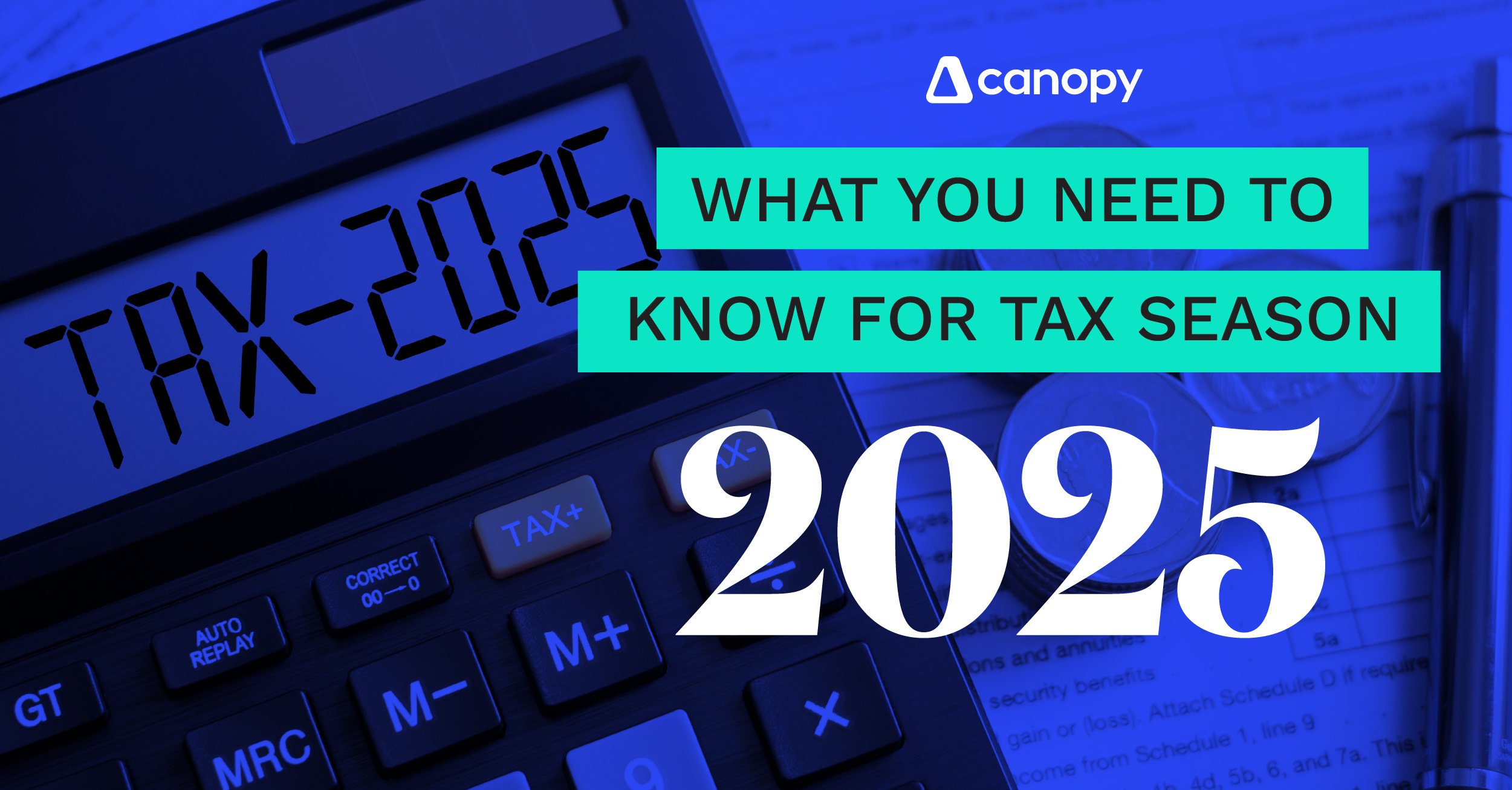In our recent webinar, "A Guide for 2023 Tax Season Individual Updates", we provided a quick guide to understanding the updates for the 2023 tax season and highlighted some ways you can help your clients (and yourself) prepare for the season.
But, there were still some questions from attendees that still needed answering. Here is a closer look, with answers included, into the great questions from our digital audience.
Q: Are superseded returns allowed for state returns?
A: While they have announced allowing the e-filing of superseded returns for federal purposes for the first time in 2022, not all states have announced they will. Some states have already (like CA, NY, and UT so far), but not all states may go along with it. The best way to know is to watch updates from your tax software as more states decide if they will allow superseded returns to be filed electronically (if they don't, they will be seen as a 'duplicated return').
Q: Can you file, see an 'oops' and file extension, then file superseded?
A: Yes. A superseded return will supersede or 'take place' of a previously filed return. If you catch that mistake before the April 17 filing deadline (for individuals), you can file a return that will take the place of the other return. Remember that this may not correct a state 'oops' that you already filed, so you may need to do an official amended return for the state, depending on which one.
Q: On the superseding return, can you still do it if the original has been accepted and still file it online?
A: That is correct. The idea of superseding a return is that it will take the place of a return that has already been filed, accepted, and processed, then we file another return that completely takes the place of the prior one already filed. I recommend waiting until the previous one has finished processing before sending the superseded one to prevent any confusion (similar to how we wait before sending an amended return until the first one has finished processing).
Q: When will the e-file system startup for the 2022 tax year?
A: For the 2023 tax filing season, the IRS has announced the official start to be January 23, 2023. For businesses, they were accepting returns earlier, but the official start for all returns is January 23, 2023.
Q: Will the 1099-K only be issued to taxpayers who only have established a business account with a payment platform? For example, CashApp offers a business or personal account when you establish an account with them.
A: The 1099-K is 'supposed' to only be issued for business purposes. If the payment platform is reasonably sure the transactions are NOT for business, they are not required to send the form. In your question of "will they," unfortunately, there is always the possibility of getting a form for someone that shouldn't have received one. In this case, it is up to us to help educate our taxpayers about what is happening and anticipate what to do when/if they get one of these forms. In this example you gave, the platform is trying to determine between business and personal, so that is a good thing. Also, there is a great FAQ with many answers about 1099-K forms.
Q: Should the 'Digital Asset' question be marked as 'yes' if the client purchased digital assets? The new wording only states "received."
A: It indeed says "received," but if I have a client that purchased digital assets, I may want to have more of an in-depth conversation at that moment because in some places, when you purchase these assets (I have seen some cryptocurrencies do this) they can offer a potential 'reward' or 'incentive' gifts of small increments of other currencies/digital assets. In this case, I would want to make certain that none of this has happened before marking 'no' to the question, which does specifically mention (a) receive (as a reward, award, or payment... etc.), which may make this a 'yes' instead. As in everything we do, we must help determine that as preparers, but this is to call attention to the wording change and to help give you different ways to look at it.
Q: Did you say that we cannot deduct mortgage interest?
A: Mortgage interest is still an allowable expense. The one that is expired now and has not been extended is mortgage insurance, which is not included unless they decide to extend the deduction in the future (and if it is retroactively, that may mean returns we should evaluate to see if they warrant being amended).
Q: Can you please expand on CTC nonrefundable?
A: A credit's primary job is just to reduce tax. This means when someone has an amount of tax that has been calculated, the available credits can subtract from the tax to reduce that tax to zero. Unfortunately, once the tax reaches zero, only a small handful of credits will allow the 'leftover' unused amount to be refunded. (We generically refer to them as 'refundable credits.') In the case of the CTC, for 2021, it was fully refundable, meaning we could get all the unused amount back in a refund once the tax was reduced to zero. For 2022 tax returns, the maximum amount that can be refunded, if leftover, is $1500.
For example, if the tax is zero and the full $2000 CTC is available for the taxpayer (or imagine cases where there could be more than one child - like $4000 available for 2, $6000 for 3, etc.), only $1500 can be refunded directly to the taxpayer. The other amounts are then 'lost' since they don't carry forward or get used elsewhere.
Q: When will the $600 limit be taken in place?
A: As it applies to the 1099-K form, only this will be effective 12/31/23, so for all 2023 forms that will be sent in early 2024, as opposed to when it was initially going to be effective — as of right now for 2022 forms. Keep in mind that for other 1099 forms, there are already thresholds in place; many of them are $600, while others have a variety of different thresholds. Check out page 26 for everything you wanted about 1099 and information returns. Keep in mind the 1099-K portion still says 'more than $600' simply because this was finalized before the announcement to hold off another year.
Q: How do you recommend handling a 1099-K received due to gift funds, for example, a grandparent contributing to a grandchild's student tuition?
A: Hopefully, it won't be issued since, in your example, it doesn't sound like the payment processor was set up for business purposes. However, we do know there will be room for issues. As with any incorrectly issued 1099, it is always recommended to contact the issuer and see if they can correct it. With the challenges that may bring, I suggest checking out how the IRS recommends reporting it if it turns out you cannot get the issuer to make the correction in their FAQ: (see page 4 specifically).
Q: Do you know if this year the IRS has a normal processing of paperwork, or are there still some delays?
A: I am not sure when we will be able to say that the IRS is completely caught up with all their backlog and that we can no longer expect processing delays. The TAS report issued a couple of weeks ago listed "Processing Delays" as #1 on their top 10 list of most serious problems. While they have been striving to clear this backlog completely, I am moving forward by letting taxpayers know there is a possibility that delays can still happen and encouraging electronic filing instead of paper filing.
Q: Is an RV Class C a second home or heavy vehicle for depreciation purposes?
A: In this question, a host of other questions would have to be answered to assist. For one, it would depend on if it is used for business or not, and if so, what % is used for business. To be a second home, it would need to be used in that manner. Many RVs qualify as second homes because they have permanently affixed sleeping, cooking, and toilet facilities, but they would need to be used that way. Since so much of what this is asking is related more to the use of the RV than anything else, I would start there since it should help lead to what it could qualify for as a deduction (if any).
Q: Do you think the improvement credit can be used for a rental home?
A: In the FAQs they issued, it specifically states that "landlords can never use these credits for improvements made to any homes they rent out but do not use as a residence themselves." Since it appears to point to homes and second homes, it is safe to say it isn't meant for rental homes. However, FAQs are guidance and not final regulations, so there is always a chance they can change things (although probably not a strong possibility).
Q: Does the tool you supplied for the clean vehicle credit allow us to find out if the critical minerals meet the requirements of the particular vehicle?
A: The tools supplied are to determine if the final assembly is in North America by using the VIN, which is one of the qualifications. The other tool is used to determine if the country where the critical minerals are extracted is part of the free trade agreements required. We expect to have an even better tool (hopefully by vehicle or VIN) that outlines which ones meet the battery requirement. Much of this is still waiting on additional guidance, but there is at least a general guide for vehicles purchased after 2023.
Q: Are MAGI limitations on Clean Vehicle Credit inflation adjusted?
A: While they often do adjust many of our income limits (like the MAGI limit on this credit) for inflation purposes, I was not able to find specifically if this one would be adjusted for inflation for 2024, so I am not able to see if it is. These limits listed here are already for 2023 purposes, so if they are adjusted, they won't be effective until 2024.
Q: Can you provide me the link again for vehicle credit lookup?
A: There are various links, and the information will continue to be updated, but a great resource is this one for vehicles after 2023. We're expected to have even more tools available in the future because figuring out which ones qualify and which don't will take more of our time than we would wish as tax professionals.
Q: Do you do any Employee Retention Credits?
A: While this is a question outside of this particular class's scope, my company offers assistance for these credits for our clients. You will find many tax professionals do help assist our clients with these credits. The ability to amend these returns is only short-lived, however, due to the statute of limitations that will require them to be filed before it expires.
Q: Can you mention the $35,000 529 plan contribution to Roth's as a rollover?
A: As part of the recently passed Omnibus spending package passed late in December, there is a provision that allows for a tax-free rollover of up to $35,000 in §529 tuition savings plans into a Roth account, but typical of taxes — there are a ton of details to this. Here are some highlights:
-
That limit is a lifetime maximum, and the Roth must be in the same name as the §529 beneficiary, not the §529 owner if it is different.
-
It has to be open for more than 15 years. It isn't clear what this could mean if someone changes beneficiaries or the waiting period of the prior beneficiary is added.
-
Rollovers can't include contributions, and earnings on those contributions, made in a preceding five-year period.
-
They are subject to the annual Roth IRA contribution limits (for example, if it is $6,500 in 2024 when it starts, that is how much you can rollover, including all other contributions to this limit. This means it would need to be done over several years.
-
However, the income limitations on these Roth IRA contributions don't apply, so a §529 beneficiary can do a §529 Roth IRA rollover even if they earn too much to normally make a Roth IRA contribution for that year.
We will certainly be getting more guidance on this in the future, but a great callout, as we can start thinking along ways, we can use planning techniques to help our clients.
For more information on 2023 tax updates, click below to view the full webinar.








Get Our Latest Updates and News by Subscribing.
Join our email list for offers, and industry leading articles and content.